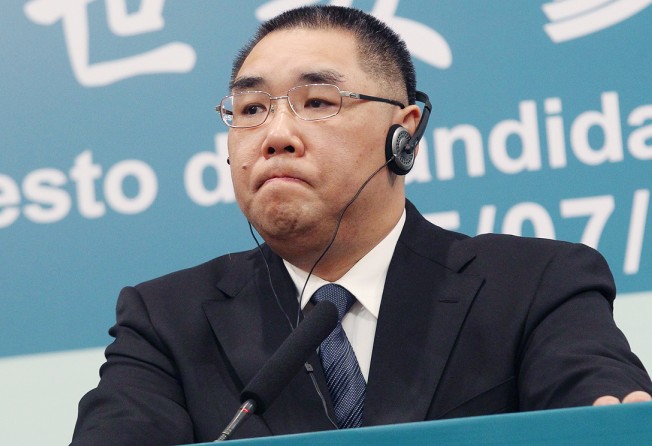After easy re-election, Macau leader now faces many challenges

It's not much of an election if it is a one-horse race. Credibility is further undermined when the ballot is confined to only 400 of 624,000 citizens. As awkward as it is, this is how Macau picks its chief executive. The poll on Sunday took less than an hour to complete, sealing the city's fate for another five years under Fernando Chui Sai-on's leadership.
Chui's bid for a second term was never in doubt. The victory - with close to 96 per cent support - is reminiscent of Hong Kong's 2002 election, in which Tung Chee-hwa was re-elected without a vote cast. But Hong Kong has since moved forward and is trying to put in place a model that will, hopefully, enable all voters to choose the leader in 2017. Regrettably, our neighbours still have to put up with uncontested polls. Their desire for democracy can be found in a mock referendum in which about 95 per cent of 8,688 citizens voted in favour of universal suffrage in 2019. Unfortunately, the Macau Basic Law does not make universal suffrage the final goal.
If economic data is anything to go by, Chui has achieved much in his first term. Gross domestic product has risen from 170 billion patacas a year to 413 billion patacas. The median wage has risen from 8,500 patacas to 13,000 patacas a month. Government coffers are overflowing with money, so much so that the cash handouts to all eligible residents are rising year after year. This is probably why he has won support from the election panel and Beijing to stay for another five years.
But the safe victory belies the challenges ahead. While Chui continues to benefit from the robust economic growth buoyed by an influx of mainland tourists and strong gaming revenues, he no longer enjoys the social harmony his predecessor did. Economic growth and speedy development have brought with them a host of problems. Property prices have rocketed fivefold since 2009. The city is also having to put up with an influx of mainland visitors. The negative sentiment took yet another turn in May, when tens of thousands took to the streets condemning a now-shelved bill that would have given lavish retirement benefits to ex-officials. Dubbed the political awakening of Macau, the landmark protest does not augur well for smooth sailing ahead. A lot needs to be done. Apart from diversifying the economy and making better use of the gaming taxes for infrastructural investment, Chui has to redouble efforts at government restructuring, produce more public housing, improve transport facilities and, above all, usher in a more open, democratic and fair society.